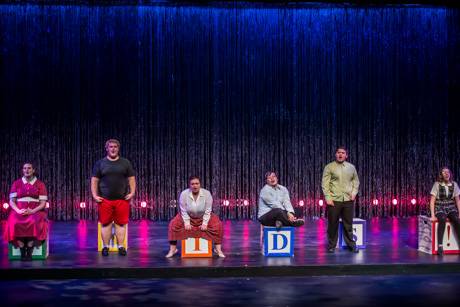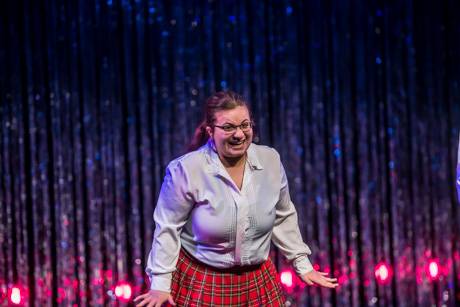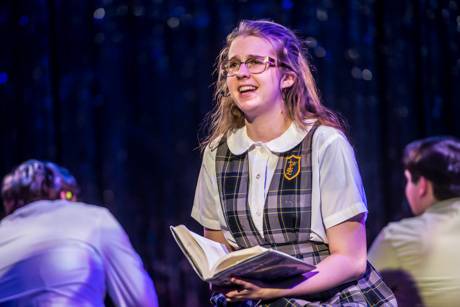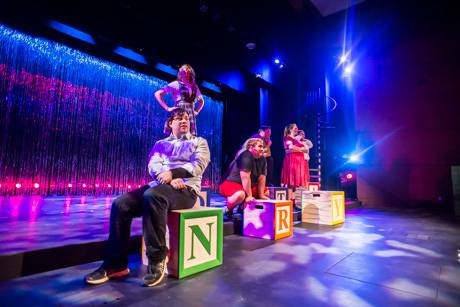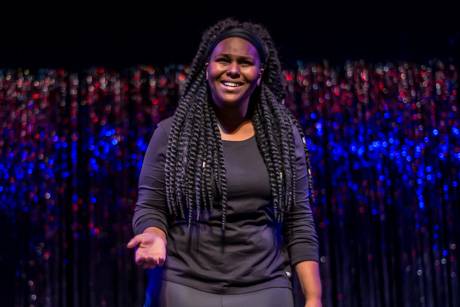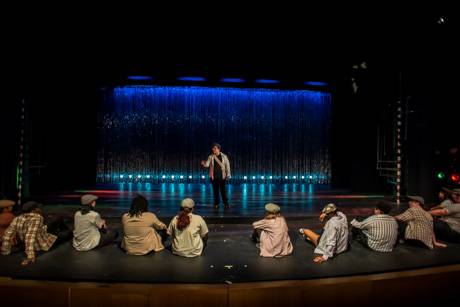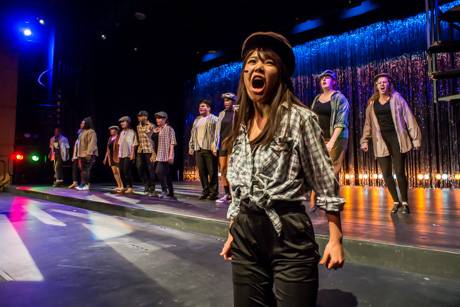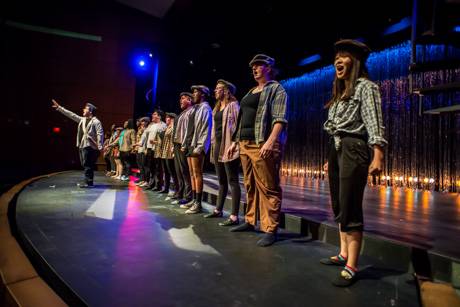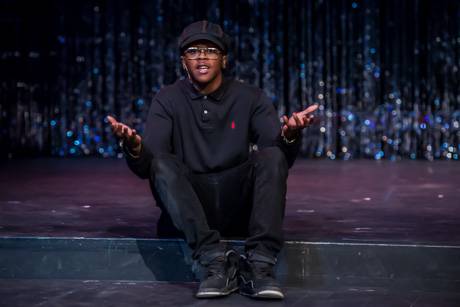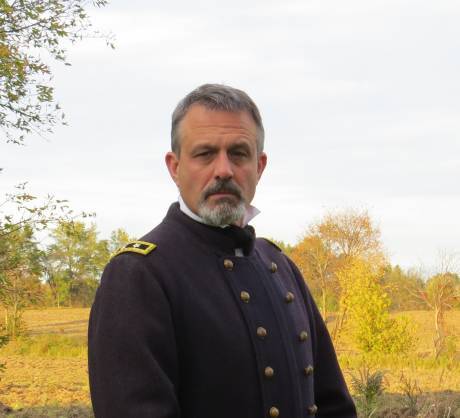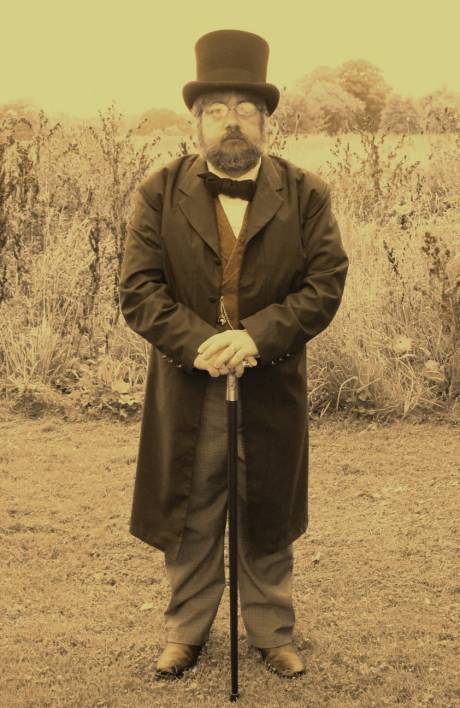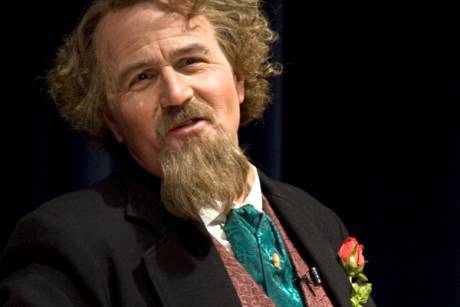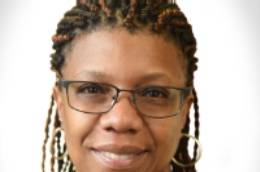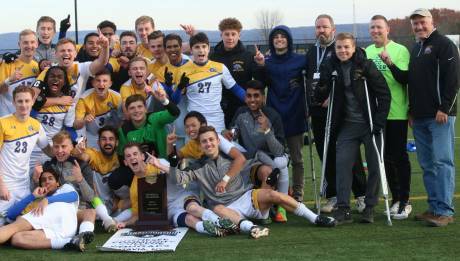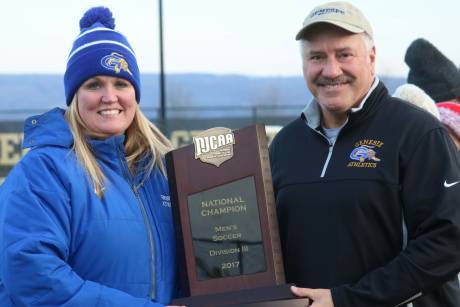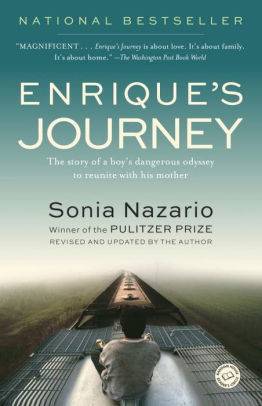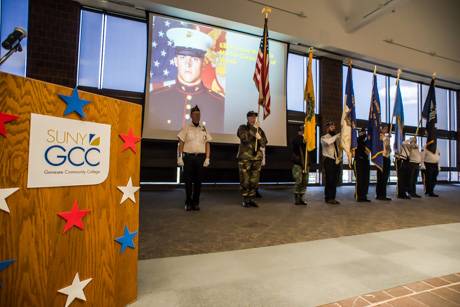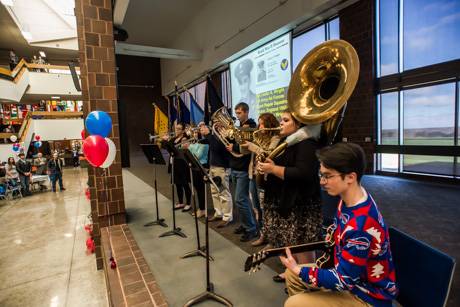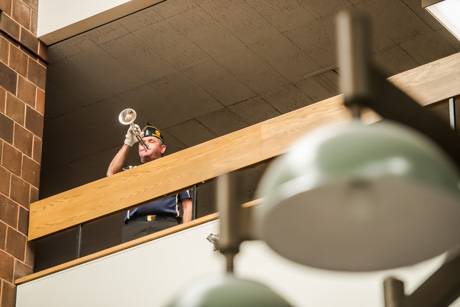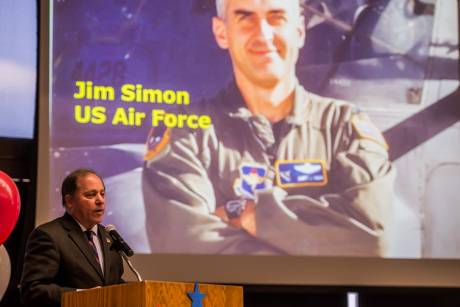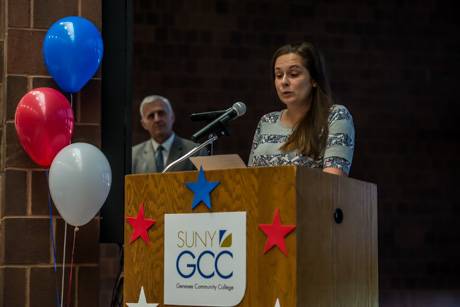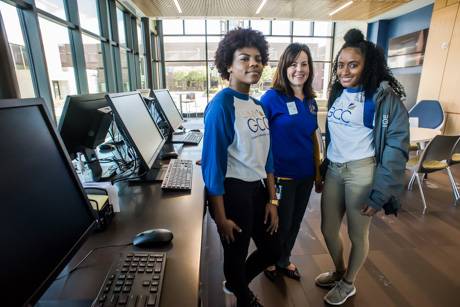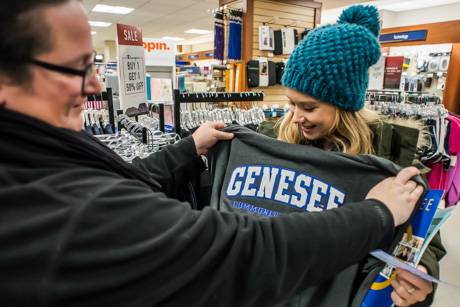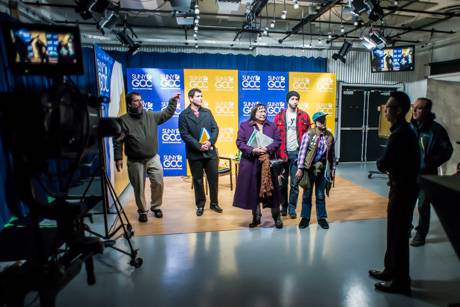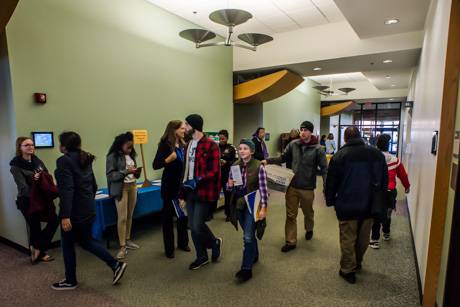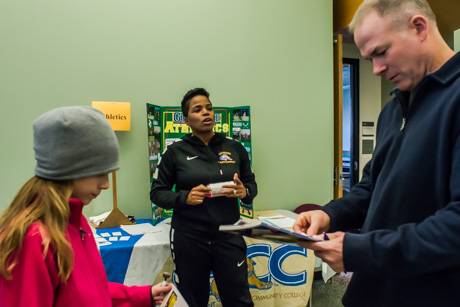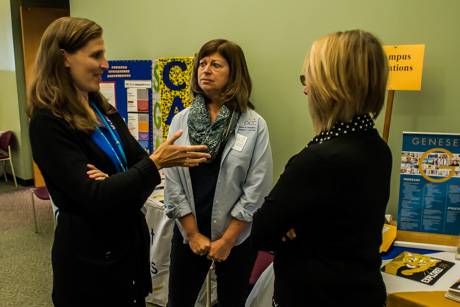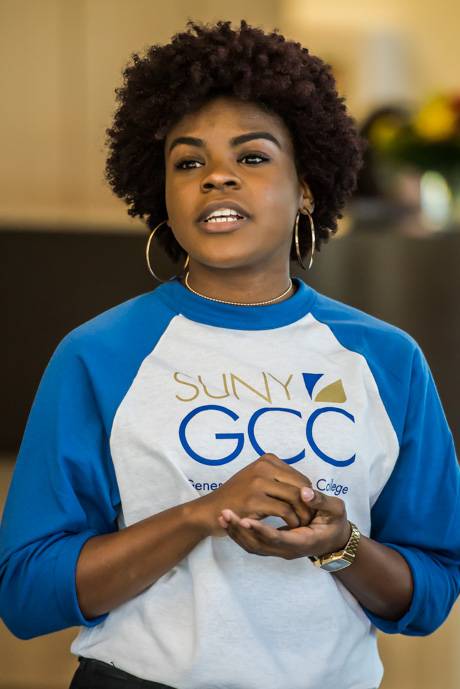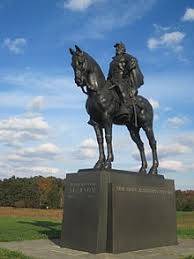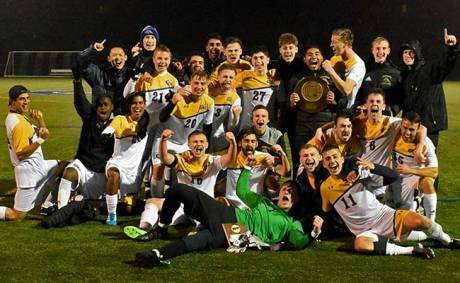Turns out history is not what you learned about from your fifth-grade textbook.
Like human beings, it’s complicated, multifaceted and a work in progress.
Historians who gathered at Genesee Community College on Saturday to discuss monuments and statues of the Confederacy made that point clear.
Other issues emanating from that controversial topic were more opaque.
Should Confederate monuments be disassembled and put into a museum? Or stand as they are and “contextualized” by the addition of explanatory signage or a juxtaposing anti-memorial?
By what criteria do we evaluate the people honored? Are they more than their worst traits? Do they contribute to the public discussion beyond their role in the Confederacy?
While more and more Americans wrestle with those kinds of questions, by all accounts, the current debate is fraught with emotion. There’s a quick-tempered divisiveness that too often rapidly devolves into shouting matches or worse, culminating in the nadir at Charlottesville.
Derek Maxfield, Ph.D., GCC associate professor of History, brought together a three-man panel to weigh in on Confederate monuments. It was the last session in a day spent talking about the short shrift that history, especially local history, is getting in New York classrooms, the stifling trend of "teaching to the test," and disaster preparedness as it relates to safeguarding historical artifacts.
Speaking were:
- (Via Skype) Chris Mackowski, Ph.D., who lives just outside Frederickburg, Va., but teaches online as professor of Journalism and Mass Communications at St. Bonaventure University in Cattaraugus County.
- Michael Eula, Ph.D., Genesee County historian, who is a retired academic who spent 30 years in the California Community College system.
- Danny Hamner, GCC adjunct professor of History for the past 15 years in Batavia.
They cited a series of articles which have been published online at a site called "The Emerging Civil War,” which offers fresh and evolving perspectives on America’s deadliest conflict. (To visit, click here.)
Mackowski provided a launching point for the sake of the discussion at GCC. He penned an article from a free speech perspective for the Emerging Civil War series because it interested him as a journalism professor, and other authors had dibs on other aspects of the controversy.
“As soon as you start saying, ‘Take down that statue because it’s offensive to me,’ to me, that’s a First Amendment issue,“ Mackowski said. "Here you have artistic expression and people saying ‘That art is offensive.’ It’s always been my understanding that one of the purposes of art is to provoke. So, of course, in some ways it’s going to be offensive to some people.”
Eula said “I couldn’t agree more that art as embodied in these statues is by definition provocative. In fact, it should be provocative. First and foremost, we need to remember that when we look at these monuments, and the discussion surrounding them, we are talking about more than monuments.
“We’re talking about how we conceive of American history…of our civil society. I think each side engaging in the conversation needs to take a moment to try and understand the other perspective, the other side."
Hamner said that although he’s disturbed by the emotional response against Confederate artwork, he diverged with Mackowski on two points.
Firstly, the question of public art versus private expression.
He said he associates the First Amendment with personal displays of art: putting a Confederate flag on your porch.
“But when it comes to public art, to me it’s not a question of free speech, it’s a question of pure politics,” Hamner said.
Therefore, Hamner advocates having a true political process to work through so that opinions are heard and a “rationale discourse” can take place regarding each monument or statue on a case by case basis.
Secondly, whether there is “instrinsic value” in a work of art strikes him as “moving the goalpost a little bit.”
Hamner said the tougher question that does need addressing is: “Do these people have intrinsic values that we need to respect – outside of their association with the Confederacy?”
Mackowski, acknowledging he purposely wrote from the viewpoint he did because it was not covered by others in the online series, agreed with his colleagues.
As we wrestle with the notion of what makes somebody worth honoring, a fear – particularly in pro-Confederate quarters – is “Who’s next?” Mackowski said, and while some argue this is a slippery slope, he allowed that “we probably need to evaluate some of these other folks.”
What do these guys represent?
It was at this point that host Maxfield brought up the stark argument, in The Emerging Civil War series, proferred by Julie Mujic (pronounced “MEW-hick”), Ph.D., adjunct professor of History at Capital University in Bexley, Ohio.
She argues that Confederate statues commemorate treason and ought to be removed.
“To sustain Confederate monuments sends the message that it’s necessary to celebrate the effort, even when that effort was malicious. The monuments must come down. They represent inequality, oppression…”
Mackowski said Mujic’s stance strikes at the heart of the whole argument: "What do these guys represent?”
“As you know, the history of the war was rewritten as soon as the war was over. And instead of it being about slavery, it starts to be about ‘noble sacrifice’, ‘doing your duty’, and ‘honor’ and ‘states’ rights’.
“So today, a lot of people refuse to look at people who served with the Confederacy as being traitors, but in fact, that’s what they were. … So do you honor that or not? That’s a very important question that we don’t have a common context for.”
Hamner has a problem with both Mujic’s argument AND the defenders of the monuments for essentially the same reason.
He cites a catch phrase, even used by President Trump in a tweet, that “You can’t change history.”
He said people tend to think of the past as objective, factual and unchanging; our historical interpretation of that past as either right or wrong.
The problem is, that “implies that the process was somehow supposed to end.”
The deal is, reinterpretation of the objective truth is going to happen with every generation, as knowledge evolves, more facts come to light, consensus migrates.
As they all conceded, historians and the citizenry can’t change the past, but the interpretations of the past must be constantly requestioned.
"I’m always struck by the curious statement that ‘We’re revising history'," Eula said. "My reaction is that ‘History is always being revised.’ "
Having said that, Eula noted that at the time most, if not all, of the statues and monuments were erected, there was no national debate about it, no consensus.
“We need to keep in mind the question: Is the removal of a monument erasing history or merely calling our attention to what is now a different interpretation of that moment in time?”
Forgotten nearly always in these discussions, Eula pointed out, are the poor whites who had not been supportive of the Confederacy from the get-go.
A whole year before the North passed a draft law forcing mandatory armed service, the Confederacy did so, which tells historians the South was not getting the numbers of volunteers for The Lost Cause that many today would like to imagine.
And the slave-holding elite, later the pardoned ex-slave-holding elite, still got the run of the place after the war.
That meant former slave owners got to become the local bankers, and pass vagrancy laws, which continued the bondage of freed men, Eula explained.
This informs today’s understanding of the time in which the statues came to be.
“My point is that it isn’t simply a straightforward proposition as to whether these statues are works of art protected by the First Amendment; whether or not there are contemporary implications for race relations in our own day.
“These are products of a specific historical moment in a specific part of the country.”
Impact Beyond the Confederacy
Eula also said many of the Confederate generals had no significance beyond their military career. That raises the question, for example, does this form a slippery-slope logic for the removal, say of the Washington Monument? No, Eula argues, because although Washington owned slaves, “his significance lies in his contribution to the construction of a new nation.”
“These (Confederate) monuments are dedicated to the memory of an elite South…seeking to destroy the United States in the name of slavery…that was as busy trampling on the rights of poor whites as it was on the slaves."
And, if the decision is made to get rid of a monument, which whether you like it or not is a “historical document,” then the process to do so must abide by some local, identifiable political construct.
To just tear down a monument, Eula said, is akin to someone walking into the Genesee County archives and saying “Well, I don’t like what’s said on this particular piece of paper, therefore, I’m going the shred it.”
“Just like for any other historical document, we have to find a way to preserve these. Whether or not they should be preserved in a public space, that’s another issue...
“These are the kinds of issues that need to be sorted out before we can make any final decision on whether or not any particular Confederate memorial stays or is replaced,” Eula said.
The operative phrase is “particular piece,” says Mackowski.
“To look at Confederate monuments as a big, monolithic one-size-fits-all sort of issue is absolutely the wrong way to go about it,” Mackowski said. "But because tempers are flaring and emotions are high, that’s sort of how people are approaching it.”
Instead, a lot of questions should be asked to inform a reasoned debate, say historians.
Who was the monument put up to honor? Why was it put up? Who put it up? When? What was the intent?
Moreover, a statue of Stonewall Jackson is a very different thing than a statue in the courthouse square that honors the local county boys who got drafted into a regiment and sent off to war.
Plus, consider that community values change, and over 150 years, they change a lot.
A book by David Lowenthal called “The Past is a Foreign Country – Revisited” describes, the panelist said, how today’s values differ vastly from those of yesteryear.
So, it behooves people today not to try and look at history through the lens of “presentism.”
“I think we’re not really talking about history at all when we talk about these monuments, we’re talking about memory,” Mackowski said.
The Sorry State of Historical Literacy
This observation prompted Maxfield to mention a problem he calls “historical literacy,” or more precisely, the lack thereof.
“I don’t want to come off as elitist about this, but the fact of the matter is we are spending less and less time in the public schools teaching history,” Maxfield said.
“We’re shoving it out of the curriculum and, in fact, Confederate history in particular, CANNOT be discussed in some Northern states.”
And vice versa; Texas comes to mind.
“That’s an unhealthy phenomenon, when you can’t look at the other side of an argument,” Maxfield said.
Meanwhile, Hamner is concerned that while people scurry to make sure history’s getting correctly written and that context is being correctly construed, there’s a gaping window open for some people to ram their political agendas through.
“One only has to look at the way Donald Trump defended the artistic value of these monuments, when he has a l-o-n-g history of development in New York City of tearing down artwork after artwork to make room for his projects.”
To wit, the construction of Trump Plaza is said to have resulted in the destruction of an Art Deco-style store that featured windows created by Spanish surrealist Salvador Dali.
None other than the Metropolitan Museum of Art in New York City waited in eager anticipation of what was supposed to be the fantabulous donation of massive Art Deco bas-relief murals from that store, only to find they had been knocked down and destroyed by Trump’s crew so as not to prolong the project by a week and a half.
The point?
“We have to be very careful that we are separating people who are using some very valid argument to shield ulterior political agendas,” Hamner said, adding “…I would hate to see a very important, intelligent conversation like this being used in a way as a shield for what I consider very, very base intentions.”
It also is not helpful that the general public does not seem to understand what the discipline of history is all about.
“A lot of what historians do is really philosophy,” Maxfield said. “Until we have the opportunity to teach more critical thinking and encourage more exploration, I’m afraid what we‘re doing, especially in the public schools, is narrow and narrow and narrow.”
Facts and Sensibilities
It’s important to remember, too, Mackowski offered, that in history, a set of facts does not equal a set of facts. Two plus two does not equal four when you are dealing with facts in history, he said.
Fact: The Union Army moved in to occupy Fredericksburg in the spring of 1862.
But that fact is viewed vastly differently by two diarists who wrote about it. One was a member of the social elite who wrote about it being this great calamity; “The Yankee invaders are here; this is awful.”
An emancipated slave saw it differently. He wrote “This is the greatest day of my life. This is the greatest thing to ever happen.”
Thus, adding together different historical perspectives over the span of a century and a half is something that can’t be “summed up” tidily.
“Before this degenerates into mindless philosophy,” Maxfield told Saturday’s attendees, garnering some comic relief, how about considering one solution offered by a historian: Leave all the monuments as they are, but just improve the interpretive signage.
How other nations have addressed the issue of historical monuments was something that Eula explored when asked to participate in the GCC panel.
“The whole issue of holocaust memorials was an obvious one” to look into, he said.
One approach he found was memorials constructed next to other memorials with different interpretations attached to them.
In the United States, for example, you could put up: a monument next to the existing one that denotes the number of slaves murdered during their enslavement; or the number of soldiers who were murdered at the Confederate prison of war camp at Andersonville, Ga.; or “the number of poor whites who couldn’t buy their way out of the draft, who didn’t support the planters’ war, and who paid for that with prison sentences,” Eula said.
Coming up with a county-by-county count of the dead, might be a way of “softening the effects of the monuments with regard to those who find them objectionable,” the official county historian said.
At this juncture, Hamner said he sees agreement about the panel’s strategies and tactics; but it comes down to his original point: the need to separate the historical element from the political one.
“I would hate to take The Lost Cause interpretation monument and then simply encase it in a new interpretation and say ‘That’s the official interpretation. Now it’s done.’ "
There is no "One Conclusive Truth"
Hamner's desire is to protect the PROCESS of public history, not the monuments themselves.
“If the political process in that community says ‘We’re putting it in a museum.’ Ultimately, I’m for that," Hamner said. "What I’m really worried about is understanding the particularities of each monument, maintaining the process of investigation, and the willingness to revise our thinking – every generation, every person.”
Which begs the question, in Eula’s mind, as to WHY we necessarily have to have ‘ONE CONCLUSIVE TRUTH’?, he asked, slapping his hand on the table as he spoke each word.
“The minute you do that it leads you down, historically, a path of dogmatism that tends to shut down democracy, that tends to shut down the expression of free ideas.”
What if we as a society never have agreement?
“So what! … Why can’t we agree to disagree and have a civil discourse?” Eula asked.
The absolute declaration of what the correct interpretation is, was called totalitarianism in the 20th century, Eula reminded the audience.
Remember, there was a time when you were either for or against McCarthyism. You were either for or against the United States entering the purported "war to end all wars,” “The Great War” -- World War I.
“That’s when a lot of innocent people get hurt and killed, for reasons to me that are absolutely senseless,” Eula said.
Mackowski countered with a “get real” argument.
Philosophizing aside, and since the notion of “contextualization” of Confederate monuments is so kosher among historians, Mackowski wanted to play devil’s advocate.
“If you’re driving down Monument Avenue in Richmond (Va.), it’s basically an auto park,” Mackowski said. “Who’s able to stop at one of those traffic islands in the middle of traffic and read context about Stonewall Jackson or Jeb Stewart or Jefferson Davis?”
Context is actually difficult to pull off in some places, he noted, and maybe even if you could pull it off, does it really match up to these giant men on giant pedestals?, he asked.
And let’s say you decide to leave it in place, what about vandalization?
To that, Maxfield chimed in with something that a historian from Texas A&M University had to offer, and that is that location does matter.
Andersonville, for example, is cited as the South’s version of a 19th century concentration camp; a place where 11,000 to 13,000 federal troops meet a grisly end under brutal conditions.
If a monument stands in a place such as this, it should be kept there, the scholar argued, even if publicly funded, because going TO that site or a battlefield is voluntary. The same cannot be said for someone who must drive past a statue that offends you every day to get to work and there’s no other route to go; that’s involuntary.
Plus, on a battlefield, historians and/or Park Service employees are there to help with knotty questions and interpretations, right?
Wrong, says Mackowski, in fact Park Service employees have largely been silent on the issue. Because taxpayers pay their salaries, they can’t really delve into it.
Some of the people best equipped to comment on this discussion have their hands tied because of politics, Mackowski said.
Nor has academia been free from constraints, Maxfield noted.
Removing monuments on a battlefield, which is essentially a giant cemetery, raises “other complexities,” according to Eula, who stressed the need for balance.
“Because we have people there, regardless of our own idealogical beliefs, who ended their life there, most likely involuntarily.”
He went on to recall how memorials to Stalin and Lenin came down in Eastern Europe in the middle of the last century.
Growing Dissent
“My point here is that, as much as it pains me to say this, there could be enough popular dissent out there regarding all these statues that no amount of discussion or legislation could change.
“It could be that our own society has so changed in the span of the last two generations in particular, that there is this huge upsurge demanding a removal of some of these monuments in the way that we saw in the Soviet Union with regard to Stalin.
“And I’m not convinced historians, even the most well intentioned, are really going to have a whole lot to say about this.”
This perspective prompted Mackowski to ask why this moment, why now?
Eula maintains that some of this popular dissent has been growing for a long time, back to the 1960s and the feelings spurred by the morass of the Vietnam War.
“It’s what I started off by saying – this is not simply about Confederate monuments,” Eula responded. “There are deeper currents here at work, and these didn’t begin recently.”
The groundswell of attention paid to the subject these days could, in part, stem from harsh “economic realities” many people face, which historians have largely been insulated from.
This means that “some of our discussions are frankly going to prove irrelevant” because they are not, rightly or wrongly, in alignment with what the populace is feeling, thinking or demanding, Eula said flatly.
Hamner said, on one hand, there’s this sort of academic/historical question of how best to contextualize Confederate artwork. Then on the other hand, there’s a deeper human question of WHY historians do what they do.
The thing that matters most of all, he said, is that – regardless of whether a decision is made to keep or do away with a monument – that a process is followed to get to the decision.
Hamner contends that the camp that says "Leave it alone. Don’t touch them" is made up of people who want to freeze time and not confront the complexity of heritage.
They are reducing human beings to their best qualities – like bravery – “a disembodied sort of character trait.”
But the opposite camp is also reductionist – making complex humans villains and the epitome of their worst characteristics.
For an example of the former, Mackowski showed a picture of the statue of Stonewall Jackson at Manassas National Battlefield Park in Prince William County, Va. (See inset photo above.)
He said Jackson is made to look like “Arnold Schwarzenegger on a Budweiser Clydesdale" … like this God of War – a horseman of the Apocalypse. In reality, Jackson was slight, modest and “would have been appalled to be portrayed this way.”
In other words, monuments are less about facts and more about “how people want to remember the Stonewalls.”
What About Bias?
A student asked the panel, “So if interpretation is the key solution, how do we select the accurate interpretation for each monument without being biased?”
The panel's collective wisdom: Finding “the objective truth” and “the right interpretation” is doomed.
Rather it is consensus itself, by interpreting and reinterpreting, that will painstakingly get you “closer and closer” to what the pluralistic outcome ought to be.
Yet Maxfield said even that is elusive because “there are progressive historians that believe progress in humankind is possible – you get closer and improve – but other historians disagree with that." That dichotomy also shapes interpretation.
Eula said he thinks it’s not possible for a historian not to be biased. So you be as objective as you can be by acknowledging your bias, “your theory.”
Since “just the facts” are not the whole story, “you look at evidence based upon your starting point. But the responsibility of the scholar is to let the audience know: This is my starting point.”
Before you can get to an interpretation of a monument, for example, you have to get people to “understand that history is relevant,” Mackowski replied.
“Unless you can get people to understand that history is not what happened in the past, but rather why the past is influencing what is going on RIGHT NOW, people aren’t going to get to that (new and improved) interpretation.”
It’s that whole issue of general historical illiteracy that Maxfield had lamented earlier.
To make meaningful headway, people have to have discussions, the historians said, not ongoing yelling matches.
“Or 140 characters of saying ‘You’re wrong!’ " Mackowski concluded.

